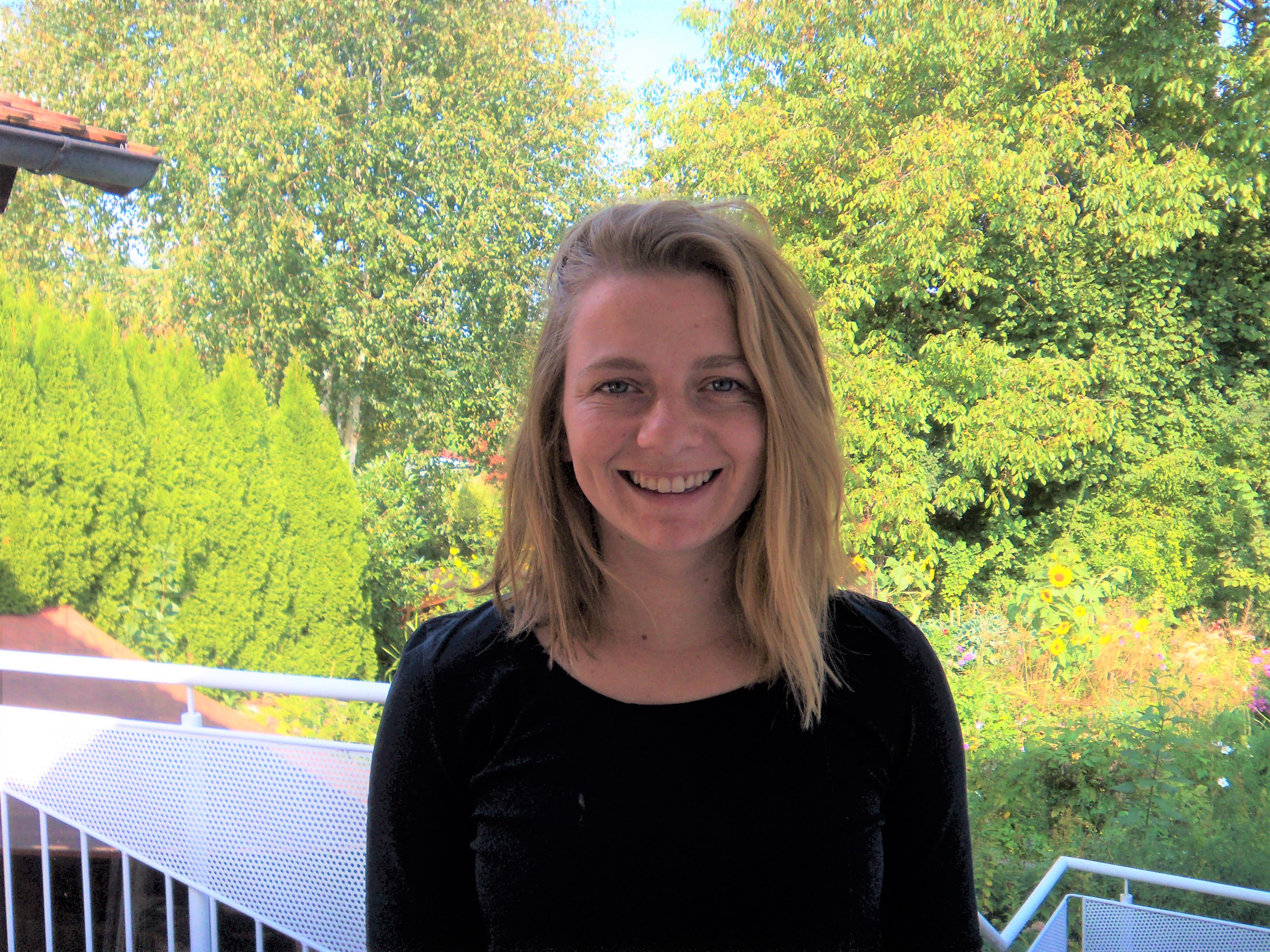26.01.2023
Cluster PhD student Kerstin Rau wins competition of "I'm a Scientist"
Our Cluster was represented by 6 scientists in the "Artificial Intelligence" round of “I'm a Scientist, get me out of here”: Jonas Beck, Rabanus Derr, Nina Effenberger, Nicole Ludwig, Cornelius Schröder and Kerstin Rau - who was nominated favorite scientist of this round.
In this scientific communication format, schoolchildren can ask questions in text-based live chats, which are answered by scientists from the respective research field. Several times a year, "I'm a Scientist" offers one- to two-week topic rounds. At the end of each round, the schoolchildren vote for their favorite scientist: Of all 34 participating scientists for “Artificial Inteligence” Kerstin Rau was elected as their favourite scientist. Kerstin is a PhD student in the research group "Soil Science and Geomorphology" with Thomas Scholten.
We talked to Kerstin after the event and asked her about her experience during those two weeks and her plans for the prize money.
1) What do you plan to do with the prize money of 500€ and why did you choose this campaign?
Since I use machine learning to predict soil types, I would like to use the prize money to go into the field with a school - preferably one that participated in the competition. There I want to illustrate the link between the data and the ML model. Because I think these two areas are often looked at separately, but it’s important to know your data and therefore be able to better choose an appropriate model. Also, it's pretty boring to just show students code.
2) Was there a question that you found particularly interesting or one that you didn't think about yourself? And what do the students' questions tell you about their interest in AI and science, what are the questions they have when it comes to AI?
I found the questions about our lives as scientists particularly interesting. There is still this image of a scientist who works non-stop and has no hobbies or friends.
Most of the questions that I myself thought very little about were questions about the history and development of AI. Sure, in some areas, like in my case regarding neural networks, you know a few facts about it. But the origin of the general interest in AI, when that term first came up, what the first AI was, were questions that I had not yet asked myself.
In general, I noticed that most people have concerns about AI or robots taking over the world, oppressing us humans, or even destroying the world. I think this image is very much influenced by the big Hollywood movies, but fortunately has nothing to do with reality - as is so often the case.
3) Would you also recommend other scientists to participate in science communication formats that enable an exchange with students and why?
Definitely. You learn so much, also about other areas in which AI is used by the other participating scientists. You also get to know how people outside the ‚science bubble‘ actually see us. And last but not least: these students are our future PhDs, postdocs, etc. By using this way of direct communication, we can show students what scientists actually do. And also show them that you don't have to be an A grade student for a scientific career, this way we can motivate them from early on. And it’s especially important to break down the big barrier between scientists and non-scientists. And it is also a lot of fun!
“I’m a Scientist” has been implemented as a German-language feature of “Wissenschaft im Dialog” since 2020. Since then, there have been rounds on the topics of sustainability, infections, particle physics, health, knowledge, climate change, digitization, democracy, and artificial intelligence & medicine. So far, over 4,000 students from more than 150 schools have actively participated in the thematic rounds. The project has been supported by more than 200 scientists.

